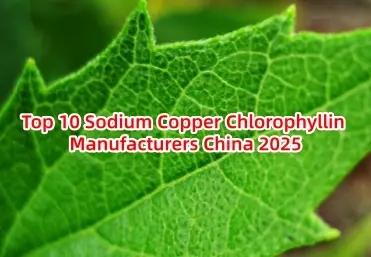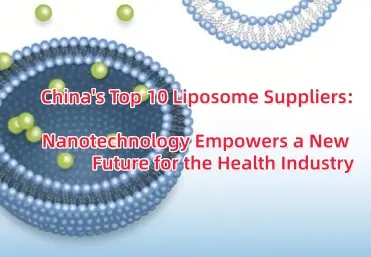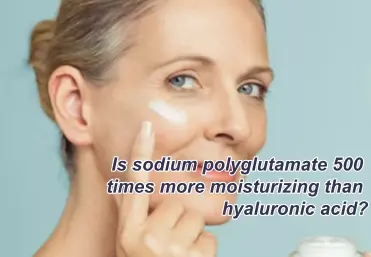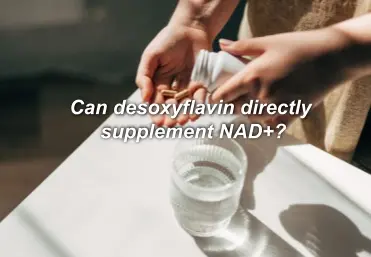Can Vitamin K2 MK7 Improve Skin Health?
Vitamin K2 MK-7 may have a positive impact on improving skin health, albeit indirectly through its benefits to other bodily systems.
Between Vitamin K2 MK-7 and skin health
• Activating Osteocalcin: Osteocalcin is a protein that transports and integrates calcium into bones to ensure bone health. It can activate osteocalcin, contributing to the maintenance of bone health.
• Preventing Vascular Calcification: It helps prevent vascular calcification, thereby reducing the risk of cardiovascular diseases.
• Antioxidant Properties: Although the antioxidant properties of it are not as prominent as those of antioxidants such as Vitamin E and Vitamin C, it still possesses certain antioxidant capabilities, aiding in the resistance against free radical damage.

• Promoting Blood Circulation: It contributes to maintaining vascular health and promoting blood circulation. Good blood circulation provides the skin with sufficient oxygen and nutrients, helping to maintain skin health and gloss.
• Enhancing Immunity: It has certain immune-regulating effects, enhancing the body's immunity. A strong immune system helps resist the invasion of external pathogens and harmful substances, thereby protecting the skin from infections and inflammation.
• Precautions: While it may have a positive impact on improving skin health, it does not directly treat skin diseases. If severe skin problems arise, it is recommended to seek medical attention promptly and follow the doctor's advice for treatment. Additionally, when supplementing with it. attention should be paid to moderation, as excessive intake may cause discomfort.
Which foods contain vitamin K2 MK-7?
The foods that contain it mainly include the following:
Natto: Natto is a traditional Japanese delicacy that not only boasts a unique taste but also contains extremely high levels of it. Per 100 grams of natto, the Vitamin K2 content can reach hundreds of micrograms to over 1,000 milligrams (data from different sources may vary, but all indicate that natto is an excellent source of Vitamin K2). The Vitamin K2 in natto is almost entirely the MK-7 long-chain subtype, which is particularly beneficial for bone health.
Fermented dairy products: Such as hard cheese, soft cheese, yogurt, etc. These dairy products produce Vitamin K2, especially in the MK-7 form, during the fermentation process. Therefore, they are another good source of it.

Animal offal: Such as chicken liver, foie gras, etc. These animal offal are also rich in it. Especially foie gras, which not only has a silky texture but is also an excellent source of Vitamin K2.
Other foods: Although the content may be relatively lower, some other foods such as egg yolks, butter, ground beef, pork chops, etc., also contain a certain amount of it .
It should be noted that the Vitamin K2 content in animal products is influenced by their diet. Animals that feed on grass typically contain higher levels of Vitamin K2 than those that feed on grains. Therefore, when selecting foods, one can prioritize products from grass-fed animals.
In addition, although it has many benefits for human health, excessive intake may also bring adverse effects. Therefore, when supplementing with it, attention should be paid to moderate intake to avoid excess. If necessary, it is recommended to consult a professional doctor or nutritionist for advice.
Vitamin K Treatment of the Skin
1. Reduces severity of bruising
A 2002 study published in the Journal of the American Academy of Dermatology looked at the effects of topical vitamin K versus placebo in the prevention and healing of laser-induced purpura (bruising) 12.
Researchers found that although using vitamin K before laser treatment didn't prevent bruising, use after did reduce the severity of bruising, particularly in the initial days of application.
2. Accelerates wound healing
Several nutrients are needed for wound healing, but studies show this is another area where vitamin K can be helpful. The skin is the most exposed part of the body and is highly susceptible to injury.
Still, thanks to the nutrient's ability to reduce bruising and coordinate angiogenesis (the formation of new blood vessels) and vascular development, especially in the skin wound healing process, it could help to accelerate healing.
A 2014 rodent study looked at the healing effects of vitamin K1 creams on full-thickness wounds and found that topical application of vitamin K demonstrates significant wound healing abilities.
3. Soothes inflammation
If you're struggling with red, painful, uneven complexion, it could be because of underlying inflammation in the skin—and thanks to vitamin K's anti-inflammatory properties, it can help reduce discomfort associated with inflammatory skin problems like eczema and psoriasis.
Some research suggests this is due to its ability to suppress nuclear factor κB (NF-κB) signal transduction and decrease the production of inflammatory markers, . Some studies also show that oral vitamin K2 and vitamin D supplements can improve psoriasis.
4. Most consumers choose vitamin K for its role in supporting bone health and blood clotting, but studies show that the benefits go far beyond that.
If you want to tone your skin condition, it may be time to add more vitamin K to your diet.contact us
Reference:
https://zhuanlan.zhihu.com/p/452785391
https://mbd.baidu.com/newspage/data/dtlandingsuper?nid=dt_5298915159348828544
http://mbd.baidu.com/newspage/data/dtlandingsuper?nid=dt_5006007654139833417
https://m.baidu.com/bh/m/detail/ar_3134982417404248823
https://www.performancelab.com/blogs/multi/vitamin-k2-for-skin?srsltid=AfmBOoojlKK2f3ddjAUBQDdckIPXnGcasBnLQpwhyOqLtJR16Ozmi0SN

 Food Additives
Food Additives









